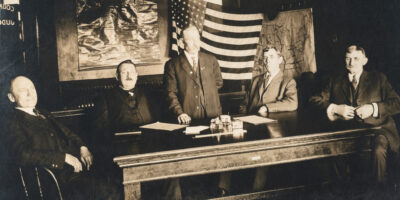Spending on Full
On Wednesday, I posted a link to a Freedom Daily article by Jim Powell. It was a very interesting article. I highly recommend it for those who are not aware of the history of Argentina and its fall from prosperity. I also highly recommend it to those who have still not yet grasped the truth of the statement, “There is no such thing as a free lunch.”
The U.S. government has taken on an increasing amount of social responsibility in the last century. It has become the distributor of Social Security, Welfare, and soon to be Healthcare in general. In the last decade we have seen the government (and its pocket organizations) institute bailouts, buyouts and enormous stimulus packages. It is a faucet opened wide. But even a faucet has to have a well, and eventually it does run dry.
I have heard arguments as to why the government does not need to operate in the same manner as individuals. To some extent that may be true, but certainly not to the levels these arguments would suggest. Just printing money is not the answer to a deficit problem. The Sound Money page has a multitude of arguments that explain the drawbacks of an inflating out of a debt crisis. It has been tried to disastrous results. Jim Powell’s article describes Argentina’s attempt to use this policy.
“[G]overnment printing presses churned out bales of paper money, and inflation skyrocketed. By June 1985, it hit 3,000 percent. The old peso was abandoned, and Argentina adopted a new peso, but since government spending remained out of control, the new peso soon became worthless like the old peso. The new peso was replaced by the austral. Various economic controls caused endemic shortages. Capital flight accelerated amidst worsening economic crises.”
The printing press is not a solution and leans only to further ruin of an economic system. People become unable to plan, unwilling to invest and unwilling to hold money. The system crumbles under the weight of a heavy debt and a worthless currency. It may be true that U.S. has not yet reached the brink of collapse (though some argue that we are closer than you might imagine), but with our faucet open wide, it is only a matter of time. Wealth is not an ever abundant resource. A nation that is wealthy today may not be tomorrow. We have seen it. The time to make changes is not when the water slows to a trickle, but now, when there is still time to slowly turn down the pressure.
Tom Duncan
Sound Money Fellow
Atlas Economic Research Foundation









